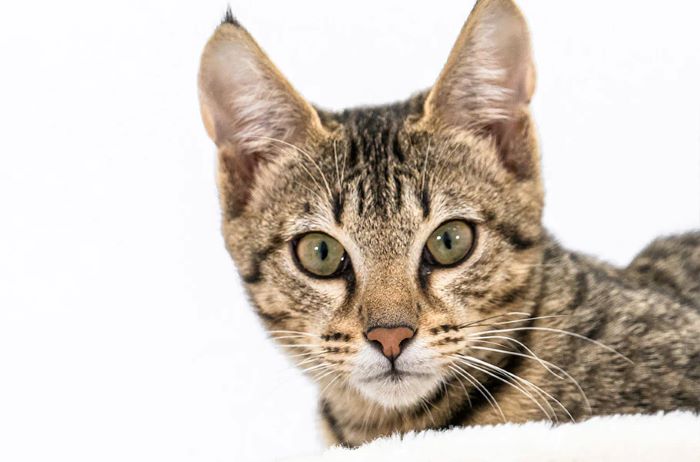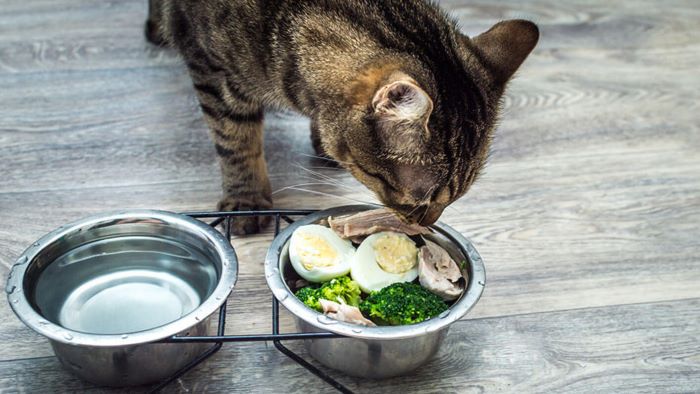Cats may be known as carnivores, but they actually have a wide variety of food preferences. The safety of feeding eggs to cats is a common concern among cat owners. Most people’s diets consist of eggs due to their high vitamin and protein content. Are eggs toxic to felines? Does feeding cats eggs have any benefits or drawbacks? And that’s not all: this article delves into the topic of feline nutrition. Let’s read below “Can Cats Eat Eggs”.
Understanding Feline Nutrition

Before we can determine if cats can eat eggs, we need to learn about their nutritional needs. As obligate carnivores, cats rely on the protein in meat and other animal products for their survival. In light of their particular stomach related frameworks and improved supplement usage from meat, carnivores have unmistakable dietary prerequisites contrasted with herbivores and omnivores. Significant supplements for the strength of felines include:
- Protein: which felines secure from excellent creature sources, is fundamental for the turn of events and support areas of strength for of.
- Taurine:There is no creature based hotspot for the amino corrosive taurine, which is pivotal for the circulatory framework, visual capability, and fruitfulness of cats.
- Fatty acids: make sufficient energy, keep their jackets solid, or keep their invulnerable frameworks working appropriately without dietary unsaturated fats, like omega-3 and omega-6 unsaturated fats
- Vitamins and minerals:: Nutrients A, D, calcium, and phosphorus are fundamental parts of a reasonable eating routine for felines to keep up with great wellbeing.
Because of their unique nutritional needs, cats must be fed a food that encourages their innate carnivorous instinct and provides them with all the nutrients they consume.
Eggs: A Nutrient-Rich Food
Because of their high nutrient density and wide variety of essential components, eggs are a popular food item among humans. When laid, a typical egg would have:
- Protein: Cats can’t maintain good health without the nine necessary amino acids, and eggs provide a good source of them.
- Vitamins: In addition to riboflavin (vitamin B2), folic acid (vitamin B9), vitamin A, vitamin D, vitamin E, and vitamin B12, eggs are a rich source of many other vitamins.
- Minerals: Eggs are a good source of many nutrients, including iron, phosphorus, zinc, and selenium.
- Fatty acids: Omega-3 and omega-6 fatty acids, which are abundant in eggs, are beneficial to your coat and overall health.
Due to the high nutrient content of eggs, many cat owners worry about giving their feline pets eggs.
Can Cats Eat Eggs?
It is safe for cats to consume little quantities of eggs. That is the abbreviated version. Eating eggs in moderation is not only perfectly healthy for cats, but it also provides them with important nutrients. However, keep in mind the following when feeding eggs to cats:
Preparation:
Ensure the eggs are cooked before taking care of them to your feline. Felines put themselves in danger of food contamination or gastrointestinal issues assuming that they devour raw eggs, which can hold onto salmonella and different microbes. Completely cooking eggs takes out any gamble of harmful microorganisms, so you might take care of them to your feline with genuine tranquility.
Moderation:
While eggs can be a nutritious expansion to a feline’s eating routine, it’s vital to keep their portion measures moderate as they incorporate a ton of protein and different supplements. A lot of any one food thing in a feline’s eating regimen could prompt healthy irregular characteristics or gastrointestinal issues. Eggs are heavenly, yet they ought not to be a staple in your eating routine. Eat them sparingly as an incidental treat.
Allergies:
Some felines develop allergies or sensitivity to eggs. When you initially add eggs to your cat’s food, be on the lookout for signs of an adverse reaction including scratching, skin irritation, vomiting, or diarrhea. If your cat shows signs of an allergic reaction, it should not be given eggs. Your doctor can provide you more information.
Eggshell and Yolk:
When feeding eggs to cats, it’s best to leave them unseasoned and without flavor. Cats may safely consume both the yolk and the shell of an egg, but the shell can be difficult for them to digest and may even make them sick if given in large quantities all at once. The avidin protein in raw egg whites can also prevent cats from absorbing biotin, so it’s best to avoid feeding them these.
Benefits of Feeding Eggs to Cats
In moderation, cats may get many health benefits from eating eggs, such as:
- Cats get an abundance of high-quality protein from eggs, which they use for a number of purposes, one of which is constructing and maintaining their muscles.
- Vitamins, minerals, and fatty acids are just a few of the many nutrients that cats require, and eggs are an excellent source of all three.
- The omega-3 and omega-6 fatty acids included in eggs help keep cats’ coats healthy and less prone to dryness, scratching, and flakiness.
- Feline mealtimes can be made more interesting and enjoyable by adding eggs to a cat’s food, which provides diversity and enrichment.
Risks and Considerations
You should know a few things before feeding your cat eggs, even if they are a nutritious diet option:
- Earlier it was mentioned that some felines have bad reactions to eggs or egg proteins, including itching, skin irritation, or gastrointestinal issues.
- Bacterial contamination: Uncooked or undercooked eggs can cause food poisoning in cats due to the presence of harmful bacteria such as salmonella. Be careful to cook the eggs thoroughly before feeding them to your cat so they don’t become sick.
- Cats should eat a balanced diet that includes eggs to ensure they obtain all the nutrients they need. Cats can develop nutritional imbalances or deficits if eggs are their only source of food or if they consume excessive amounts of eggs.
Eggs are one component that can cause gastrointestinal distress in certain cats, which can manifest as vomiting or diarrhea, when introduced to new diets. It is recommended to introduce eggs little by bit while keeping a tight eye on your cat to ensure they can manage them.
How to Feed Eggs to Cats
- Before feeding eggs to your cat, ensure sure they are fully cooked to avoid any potential bacterial contamination.
- Propose reasonable prices: Eggs are delicious, but they shouldn’t be a staple in your diet. Eat them sparingly as an occasional treat. Make sure eggs aren’t replacing other essential nutrients by monitoring your cat’s calorie consumption.
- Gradually incorporate: Introducing eggs to your cat’s diet for the first time is best done slowly, with a small amount, while closely watching for signs of any negative responses. Assuming your feline friend has no issues eating eggs, you can gradually increase the portion amount.
- Seasoned or not: Serve the eggs plain, without any seasonings or other toppings. Because of the risk of salmonella contamination and decreased biotin absorption, cats should not consume raw egg whites.
Conclusion
Last but not least, cats can benefit from eating eggs as long as they are cooked properly and provided in moderation. Eggs are a great way to provide your cat with protein, as well as other nutrients including vitamins, minerals, and healthy fats. Some of these benefits include fostering robust muscular development, a glossy coat, and overall wellness. Watch your cat closely for signs of an adverse reaction and be sure to cook the eggs correctly before serving them in moderation.
For advice tailored to your cat’s unique health and dietary needs, see your vet if you have concerns about feeding them eggs or any other questions. With proper handling, eggs can be a delicious and nutritious way to add variety to your cat’s diet. I hope you like reading “Can Cats Eat Eggs”.

Dr. Katie Lawlor is a seasoned expert in pet care with over 8 years of experience dedicated to enhancing the well-being of pets and their families. As a passionate advocate for animal health, Dr. Lawlor combines her extensive knowledge with a compassionate approach, offering valuable insights and practical advice on pet wellness. Her commitment to improving the lives of pets and their owners is reflected in her engaging content on PetPawsitively .com. Follow Dr. Lawlor’s work and connect with her on Instagram for expert tips and support.

